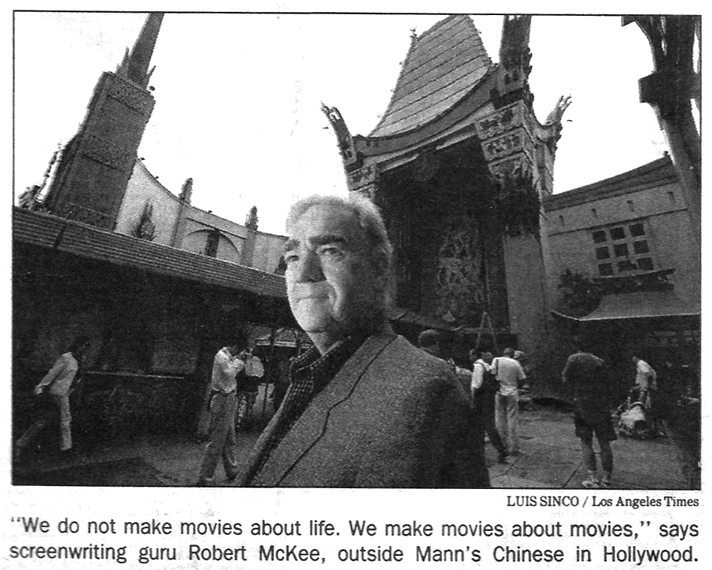An excerpt from the upcoming book by Armando Nieto, Mary Conrad, and Matt Pallamary: On Sunday night the SBWC heard from Robert McKee, an acknowledged guru of Hollywood screenwriters, and a master at any form of story-telling. The title of his lecture was “Character vs. Plot Driven,” and he began by citing one of the earlier teachers and story-tellers, Aristotle in the Poetics.
“What is more important in a story? The story told, or the characters in the story?
“Aristotle also had a hierarchy of good writing,” McKee said, “which included plot, character, idea, dialogue, music, and spectacle.”
According to Aristotle, “Spectacle is the least creative aspect of a production. It is the least important aspect of the production. It just costs money.”
McKee noted that Aristotle had a lot in common with modern day producers. “In fact, Aristotle sounds like a Hollywood producer, more than once in the Poetics,” McKee said. He guided the audience through an examination of modern film and Broadway productions and other forms of story telling, noting Aristotle’s litany scrambled.
“In what order are things promoted today?” he queried, “Spectacle. Second? Music. Third? Witty dialogue. Number five? The idea. And number six the story.”
McKee said that Aristotle also noted that when story telling goes bad in a culture so does society. The result is decadence.
“Compare for example the last two Oscar winners,” said McKee. “Titanic, and the abysmal The English Patient.” Spectacle and so many caricatures in the movie making.
He continued, “Just once, I’d like to hear the stiff-upper-lip British ship’s captain say, ‘I’m fucking scared man!’”
The lecture continued with a recitation of the intervention points required to stop the decline in culture represented by films, plays, and literature in the U.S. and he discussed character vs. characterization, saying that the only way to know the true human nature of a character is by their choices under pressure. It cannot simply be a good or bad choice because the character will always choose the good or the right from their point of view. It’s one of the laws of nature.
“This is true, from Genghis Khan to Adolf Hitler. Choice and dilemma of the character reveal the nature of a character. Characterization is what is said about the character, what the character says or does, the story. Characterization is not character.
"It is the pressure combined with choices made under pressure that reveals the true 'character' of a character."
McKee said this is true in films, as it is in literature. “Sophie’s Choice, for example,” he proffered.
Increasingly difficult choices that lead to change are the milestones of a good story, movie or production.















